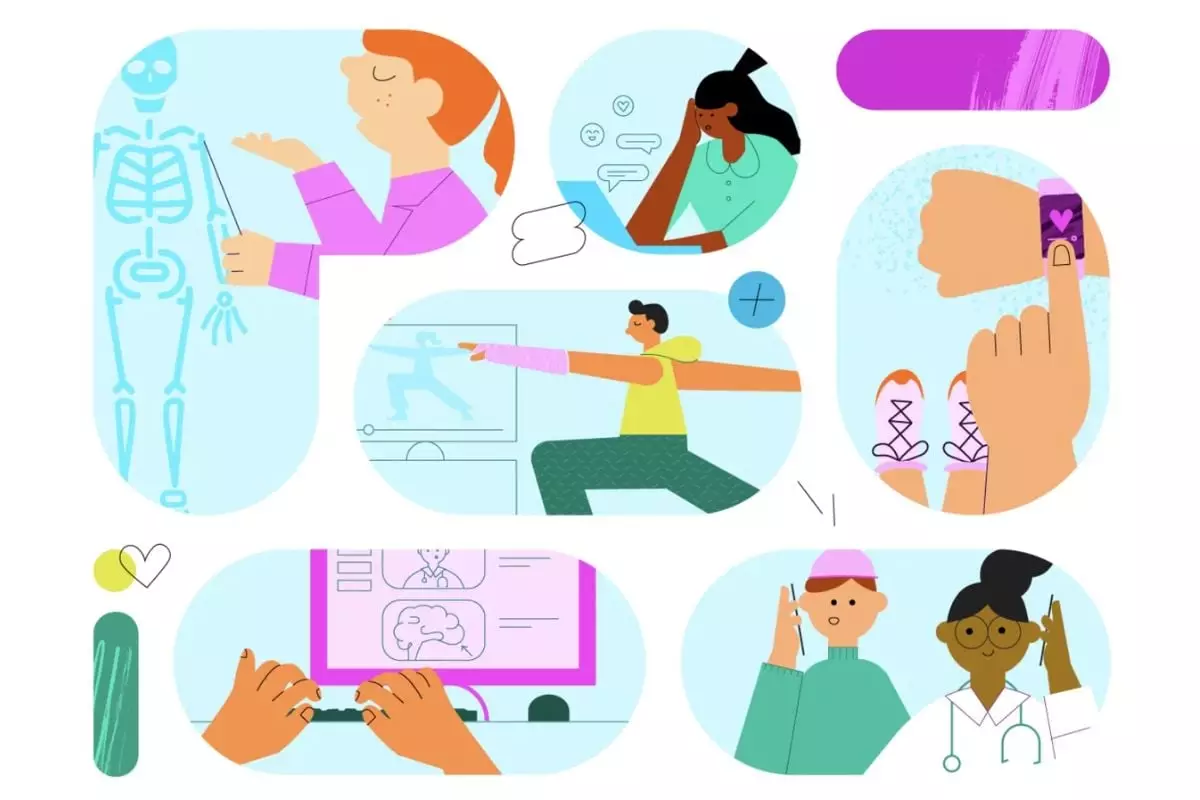In an age where digital platforms serve as primary sources of information, YouTube continues to evolve as a significant player in the realm of health education. The platform’s latest initiative, announced recently, aims to enhance the accessibility of verified health information by allowing accredited healthcare professionals to contribute content to its dedicated health sections. This strategic move not only promotes awareness of medical topics but also strives to combat misinformation that can often proliferate in the online space.
For several years now, YouTube has employed specific features designed to streamline the process of finding reliable health-related content. Among these features are health content shelves and health source information panels. Health content shelves appear prominently at the top of search results for medical inquiries—offering a curated selection of videos on topics like diabetes and heart disease. The user-friendly carousel format allows individuals to scroll through verified sources, which can significantly reduce the chance of encountering misleading or sensationalist content.
Historically, only accredited organizations and medical institutions had access to these features. Notable partnerships in India with prominent healthcare institutions exemplify this approach, as they provide users with confidently reliable health information directly linked to these recognized bodies.
The new extension of these features to individual health professionals, including doctors, nurses, and mental health experts, marks a significant shift. YouTube has recognized that a broader spectrum of healthcare creators can provide valuable insights and knowledge. By enabling these qualified professionals to apply for verification, YouTube is opening the door for a more diverse range of voices in the health discussion.
This expansion not only signifies YouTube’s commitment to enhancing content diversity but also acknowledges the expertise that individual healthcare providers can bring. Upon application, content creators will be vetted against rigorous guidelines based on recommendations from esteemed organizations such as the World Health Organization and the National Academy of Medicine. This vetting process ensures that only credible and high-quality information is shared, significantly benefiting users who are seeking trustworthy medical guidance.
The modern digital landscape is plagued with misinformation, particularly concerning health topics. The rise of clickbait headlines and sensationalist videos can mislead viewers, causing misunderstandings about crucial health issues. YouTube’s decision to enhance its framework for health content aims to directly combat this challenge by prioritizing verified information.
As the platform expands the number of creators eligible for health content shelves, the likelihood of audiences encountering misleading information could decrease significantly. Not only does this empower healthcare professionals, but it also allows users to access a wider range of reliable content tailored to their specific health concerns.
Looking ahead, YouTube’s initiative suggests promising developments in the way health information will be disseminated online. Given that the platform plans to broaden these features to additional medical specialties, there is an exciting opportunity for healthcare narratives to be presented from an array of perspectives. This could ultimately improve patient education by providing insights not just from institutions but also from experienced practitioners who may specialize in niche areas of medicine.
As more healthcare creators gain access to these channels, users are likely to find a richer, more diverse set of information. This initiative could also inspire a community network among healthcare providers, fostering collaboration and the sharing of best practices in health communication.
YouTube’s expansion of its health content features marks a noteworthy advancement in the pursuit of reliable medical information dissemination. By empowering healthcare professionals to contribute to a platform that thrives on user-generated content, YouTube addresses the pressing need for credible health information while simultaneously striving to mitigate fake news. This initiative is not just a technical upgrade; it reflects a broader commitment to enhancing public health literacy in a digital age—an essential step forward in ensuring users can trust the health information they consume.

